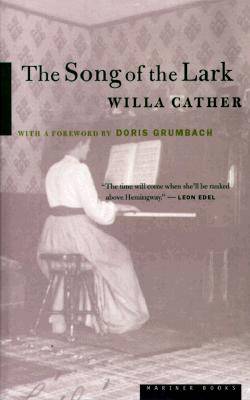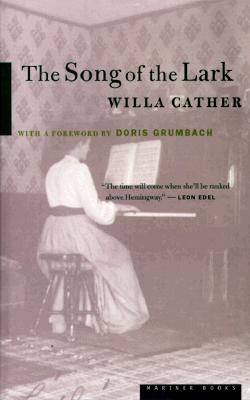
- Afhalen na 1 uur in een winkel met voorraad
- Gratis thuislevering in België vanaf € 30
- Ruim aanbod met 7 miljoen producten
- Afhalen na 1 uur in een winkel met voorraad
- Gratis thuislevering in België vanaf € 30
- Ruim aanbod met 7 miljoen producten
Zoeken
Omschrijving
This moving tale of a woman's devotion to her art is one of Cather's most autobiographical works.
A moving story about a young woman's artistic growth, "The Song of the Lark" (1915) conflates Willa Cather's own childhood experiences with the career of a celebrated Wagnerian soprano of her day. Thea Kronberg is a Scandinavian-American singer who rises from a one-story Colorado town to the Metropolitan Opera House. Along the way she struggles with the tension between nurturing personal vitality and achieving artistic sublimity. The enervated artist seeks solace in an isolated desert canyon where she experiences the epiphany that will transform her vision and art. As is characteristic in Cather's work, the western landscape both represents the inner lives of characters and regenerates their tired imaginations.
"The Song of the Lark" is an eloquent expression of Cather's paradoxical fondness of and impatience with the small-town milieu of her childhood, as well as an evocative portrait of a young American woman artist.
A moving story about a young woman's artistic growth, "The Song of the Lark" (1915) conflates Willa Cather's own childhood experiences with the career of a celebrated Wagnerian soprano of her day. Thea Kronberg is a Scandinavian-American singer who rises from a one-story Colorado town to the Metropolitan Opera House. Along the way she struggles with the tension between nurturing personal vitality and achieving artistic sublimity. The enervated artist seeks solace in an isolated desert canyon where she experiences the epiphany that will transform her vision and art. As is characteristic in Cather's work, the western landscape both represents the inner lives of characters and regenerates their tired imaginations.
"The Song of the Lark" is an eloquent expression of Cather's paradoxical fondness of and impatience with the small-town milieu of her childhood, as well as an evocative portrait of a young American woman artist.
Specificaties
Betrokkenen
- Auteur(s):
- Uitgeverij:
Inhoud
- Aantal bladzijden:
- 456
- Taal:
- Engels
Eigenschappen
- Productcode (EAN):
- 9780395345306
- Verschijningsdatum:
- 10/05/1983
- Uitvoering:
- Paperback
- Formaat:
- Trade paperback (VS)
- Afmetingen:
- 128 mm x 197 mm
- Gewicht:
- 390 g

Alleen bij Standaard Boekhandel
+ 27 punten op je klantenkaart van Standaard Boekhandel
Beoordelingen
We publiceren alleen reviews die voldoen aan de voorwaarden voor reviews. Bekijk onze voorwaarden voor reviews.








